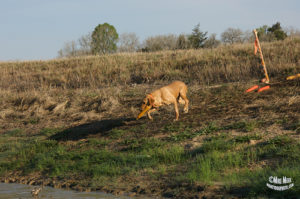Whether you seek professional help with your Labrador retriever puppy training or you decide to do it yourself, it is an important element of dog ownership. Some parts of training your puppy are unnecessary, but others are

required for a well-mannered dog. As you consider which types of training you want for your dog, you need to know the benefits of each one so you can make the right choices for your family.
Because Labrador retrievers are known for being friendly and active, they can be quite excitable, especially as puppies. If you don’t train your puppy in basic obedience training, you will find that your dog jumps on everyone and doesn’t listen well. Even if you don’t implement the exact tricks learned in an obedience class, such as “sit”, “heel”, and “down”, your dog will learn to listen. You can then take that skill and teach your dog to obey you in other areas.
Another important aspect of Labrador retriever puppy training is in the potty training. If you purchase your puppy when it is young, it likely isn’t house trained. This means you will need to spend a lot of time taking your puppy outside to teach it to relieve itself outside. If you don’t take the time to do this, you will end up with more messes to clean up. You may still have some messes, but early house training will reduce, and eventually eliminate, the messes.
If you plan for your dog to participate in special activities, such as hunting or dock diving, you will need to train it to do these things. While you can certainly teach an older Labrador what it needs for these activities, it is easiest to start as a puppy. When you start this type of training in a younger dog, it will notice the tasks more quickly and provide you with more time to enjoy the benefits.
Typical obedience training is necessary for your Labrador retriever puppy training course. You can find puppy classes through your local humane society or by asking your veterinarian for recommendations. It is also important to house train your puppy so you don’t have to deal with cleaning up messes in your home. These two types of training are the most important for all dogs. However, if you wish, you can train your dog to do other tasks as well.











